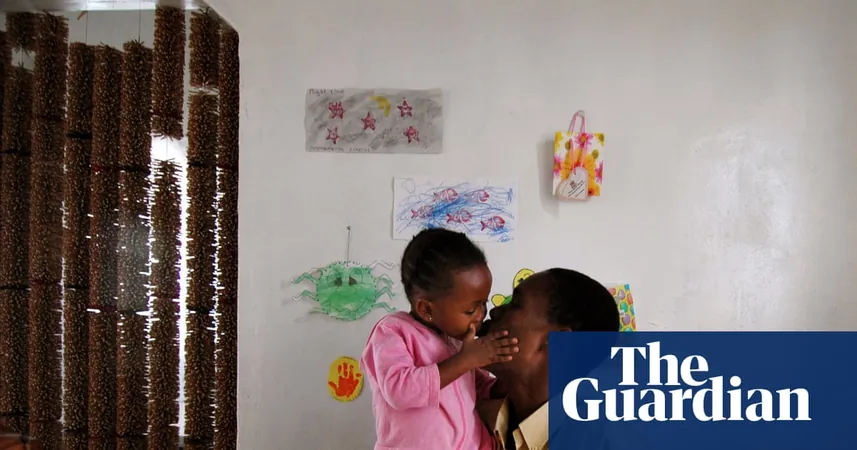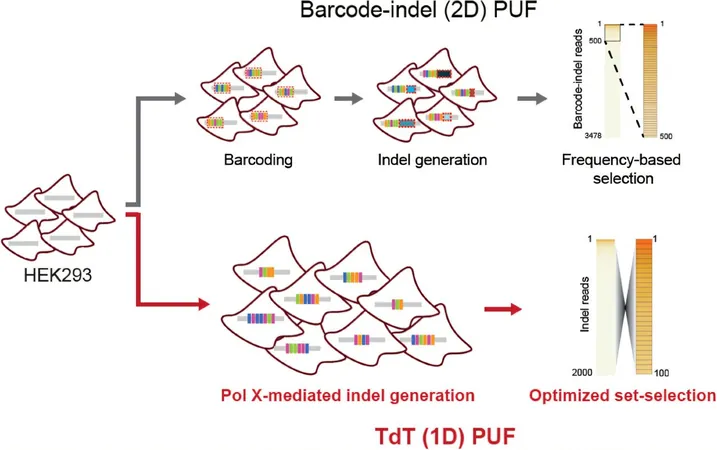
From Extinction Risk to Global Leader: Botswana's HIV Transformation
2025-08-22
Author: Mei
A Nation on the Brink: Botswana's HIV Crisis
At the dawn of the 21st century, Botswana faced an alarming epidemic: a staggering one in eight infants were born with HIV. The transmission rates from mother to child, whether during pregnancy, delivery, or breastfeeding, soared between 20% and 40%. This crisis pushed child mortality under five years old to nearly double, raising alarm bells throughout the nation. In a bold declaration, then-President Festus Mogae claimed, 'We are threatened with extinction.'
Rising from the Ashes: Pioneering Interventions
Amid this dire situation, Botswana emerged as a beacon of hope with a groundbreaking HIV elimination program. Spearheaded by Dr. Loeto Mazhani and backed by Mogae, innovative strategies were developed over two decades, slashing mother-to-child transmission rates to below 1%. In a historic achievement, Botswana became the first country to earn the World Health Organization’s Gold Tier status for eliminating vertical HIV transmission.
Unbelievable Progress: WHO's Doubt and Acceptance
The transformation was so remarkable that the WHO initially doubted Botswana's reported figures. Dr. Ava Avalos, an HIV specialist, recalled the disbelief of health officials who insisted there were still thousands of cases of HIV-positive infants. Years later, the evidence confirmed that Botswana’s initiatives truly changed the landscape.
Challenges Overcome: Stigma and Health Education
Achieving this status was not without hurdles. Convincing HIV-positive mothers to use formula milk instead of breastfeeding posed a significant challenge, as formula feeding often drew stigma in their communities. Dr. Mazhani highlighted how persistent education and support gradually reduced the stigma surrounding formula use.
Innovative Treatment Strategies: The Game Changer
A pivotal moment in the battle against HIV in Botswana came with the 2013 implementation of the WHO’s Option B+ strategy. This initiative provided free antiretroviral therapy to all pregnant and breastfeeding women living with HIV, making Botswana a pioneer in national funding for such programs. Professor Roger Shapiro emphasized that this three-drug regimen significantly reduced vertical transmission.
Attacking HIV from All Angles: Comprehensive Testing
Despite advancements, further efforts were necessary to tackle the transmission that occurred when mothers contracted HIV during pregnancy. The Botswana health ministry bolstered its laboratory capabilities and instituted repeat HIV testing for all pregnant women. This swift identification and treatment approach ensures the health of both mothers and their babies.
A Global Example: Botswana's Unique Advantage
Botswana's nearly universal antenatal care and hospital births set it apart from other sub-Saharan countries. Max Kapanda noted that this allows for immediate testing and treatment of newborns, greatly reducing infection rates. This rigorous system has resulted in a unique cohort of children in Botswana who, thanks to lifelong treatment, now show nearly negligible levels of the virus.
A New Hope: Trials for a Cure
Researchers at the recent International Aids Society conference discussed the extraordinary potential of these children in experimental trials aimed at finding a cure for HIV. Makhema articulated a promising hypothesis: treating children early may prevent the virus from embedding within their cells, thus making them prime candidates for cure attempts.
Future Challenges: Economic Pressures Ahead
Despite Botswana's successes, looming economic challenges threaten the sustainability of its HIV program. With the government’s funding and the local economy facing downturns, the urgency to find a cure is heightened. Avalos warned that while Botswana's program remains robust, declared challenges in the diamond industry and tariff issues could jeopardize future investments in HIV care.
A Beacon of Optimism: Botswana's Potential for a Cure
Amidst these challenges, the infrastructure, innovative spirit, and resilient population provide hope. If a breakthrough cure for HIV is achievable anywhere, many believe it will be in Botswana—a nation that has transformed its HIV landscape from one of crisis to a model of success.





 Brasil (PT)
Brasil (PT)
 Canada (EN)
Canada (EN)
 Chile (ES)
Chile (ES)
 Česko (CS)
Česko (CS)
 대한민국 (KO)
대한민국 (KO)
 España (ES)
España (ES)
 France (FR)
France (FR)
 Hong Kong (EN)
Hong Kong (EN)
 Italia (IT)
Italia (IT)
 日本 (JA)
日本 (JA)
 Magyarország (HU)
Magyarország (HU)
 Norge (NO)
Norge (NO)
 Polska (PL)
Polska (PL)
 Schweiz (DE)
Schweiz (DE)
 Singapore (EN)
Singapore (EN)
 Sverige (SV)
Sverige (SV)
 Suomi (FI)
Suomi (FI)
 Türkiye (TR)
Türkiye (TR)
 الإمارات العربية المتحدة (AR)
الإمارات العربية المتحدة (AR)